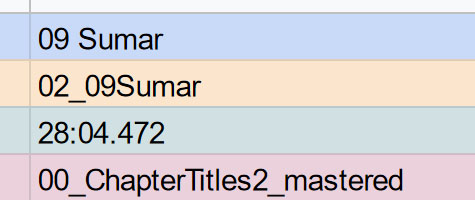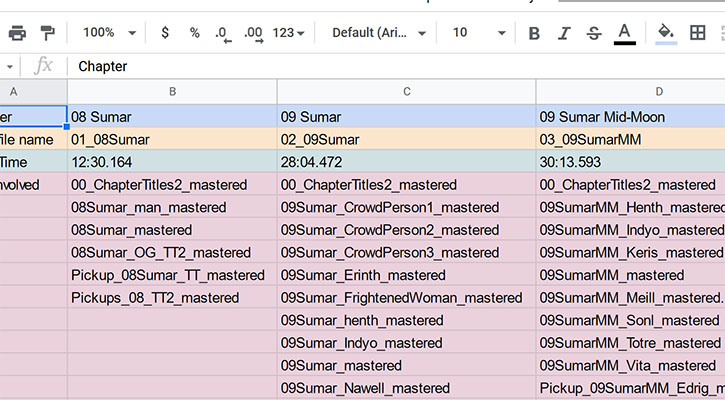I am officially tired of listening to my own voice.
I would love to say I am almost finished, but it is not true. Everything has been recorded (finally), but editing and putting each chapter together is time consuming. I pondered what I would do differently, and decided to take a much needed break to type it out. Documenting what should be done (according to me) is as much for you, as it is for me.
Through this process, I developed a healthy respect and admiration for both audiobook actors/actresses and audio engineers. My “slightly above novice” knowledge of audio recording, editing, and mastering has gotten me through, so far, but I acknowledge the skill and talent needed to be truly successful. I began the experience with an understanding of basic audio production. Through research and pure trial/error, I have progressed. This being said, my list of what to do, comes from my approach and capabilities.
Next time I record one of my own audiobooks, I will:
- Record in 1 to 2 hour increments per day, only in the morning.
- Why?
- I wrecked my voice, due to recording too much per day.
- My voice is generally too gravelly by mid-afternoon.
- Why?
- Edit out “clicks” the same day.
- Why?
- Visually seeing errors via dog-clicker audio spikes makes editing quick, easy, and provides a sense of accomplishment.
- Why?
- Master audio before clearing/sweetening/perfecting the audio.
- Why?
- This requires me to listen to the audio and only “fix” spots that need it, instead of “fixing” areas primarily based on visual cues. I initially looked at mastering audio as a final step, but seemed to work better this way.
- I use EQ, DeClicker, DeEsser, and Match Loudness in the mastering process, which “fixes” many issues.
- Mastering the audio first is a faster process and encourages me to be less of a perfectionist. The audio is mostly fine and does not benefit from incessant fault-finding.
- Why?
- Complete edits, mastering, and perfecting audio the same day it is recorded.
- Why?
- It helps to manage the workload.
- While there may be days that everything is not completed, a buildup of editing/completing audio quickly becomes overwhelming.
- Recording and working with the audio daily, allows you to catch hardware/software/diction/pace errors more quickly.
- Why?

